Christmas is just around the corner. Where will UM members go for the holiday? In this issue, we interview several UM students and staff members, who share with us the things they always carry when travelling around the world.
A Companion on 20 Trips
Liu Tzu-Ming, an associate professor in the Faculty of Health Sciences and an expert in biomedical engineering, has been a camping and hiking enthusiast since he was a university student. When he goes hiking, he always takes the same backpack, filled with hiking and camping gear. He has carried the backpack, which usually weighs about 20 kilograms, for at least 20 trips in the past 15 years. His destinations have included Dabajian Mountain in Taiwan, Mount Tate in Japan, and Hác-Sá Reservoir Natural Park in Macao. The backpack is an important part of his journey through life, from studying in college, to falling in love, to getting married. In the beginning, he went hiking alone, but now he is joined by his wife and two children.
Hikers sometimes run into unexpected situations like getting lost or sudden changes in weather, but Prof Liu sees them as opportunities to develop his crisis management ability. At work, he studies the physiological state of cells in living bodies with optical microscopes, and applies photoelectric technologies to precision medicine for cancer treatment. ‘Hiking clears my mind and enables me to spend quality time with my friends and family, which sometimes inspires new ideas that did not occur to me in a laboratory,’ he says.
In the coming Christmas, Prof Liu will travel to Hsinchu, Taiwan again with his family. He says, ‘Stepping on the needle leaves on the hills feels like jumping on a boxspring.’ Indeed, nothing makes him happier than returning to nature.
Reading while Travelling
Sun Sisi, a resident fellow in Lui Che Woo College, always takes a book when travelling. This Christmas, she will visit Jilin province with some students in the college, and she plans to take the book The Great Ocean. ‘Books are the spice of life,’ she says. ‘I think it’s romantic to carry a book when travelling. One chapter in the book, The Great Ocean, mentions that unlike most mammals, baby dolphins can’t breathe in water, so baby dolphins are usually born tail first to minimise the risk of drowning. The female dolphin will then hold the baby dolphin above the water to help it take its first breath. I’ve learned a lot of fun science knowledge from these books.’
Sun loves books about history, psychology, and science. She often organises book reading events for students in her college, hoping to create an atmosphere where book lovers can learn from each other and inspire other students to also read.
10-kg Camera Gear
Eric Chan, a PhD student of mechanical and electrical engineering, who is also a staff member at UM, travels during most holidays with his ten-kilogram photographic equipment package, which includes a backpack, a laptop for image and video editing, a camera with three prime lenses with different focal lengths, batteries, filters, mobile phone stabilisers, and a tripod. In November, Chan and his family visited Shikoku, Japan, again with his photographic equipment. Apart from taking pictures, Chan used his new mobile phone to produce Vlogs and shared them on Facebook. ‘I enjoy sharing wonderful moments during my trips. I feel very happy when people like my pictures and videos,’ he says.
On that trip, he took many beautiful pictures of natural scenery, two of which have become his Facebook profile pictures. One was taken in his guesthouse, depicting the sunrise, and the other is a selfie with autumn leaves around. He wrote a caption on Facebook: ‘I have truly enjoyed the beauty of Shikoku’s natural scenery, which embodies the beauty created by God.’
Travelling in Traditional Chinese Costume
Li Yue, a third-year student in the Department of Finance and Business Economics and a member of Chao Kuang Piu College (CKPC), loves Chinese culture. She is not only a good calligrapher, but also a big fan of Hanfu (the traditional clothing of the Han ethnic group that was popular before the Qing dynasty). She often wears Hanfu and considers it a symbol of Chinese culture. When she travels, Li carries several sets of Hanfu to fit different local attractions. This has sometimes led to interesting interactions with the locals. Earlier this year, she went to France for a summer exchange programme. During her stay there, Li’s teacher was amazed by her beautiful Hanfu. When walking on the street one day, she even met an old lady who liked her Hanfu so much that she asked to take a picture with Li.
Li says, ‘During my journeys, I want to make new friends through my Hanfu, and promote our traditional costume to the world.’
Playing Badminton on the Go
Walter Tan from Malaysia is a fourth-year student in the Department of Integrated Resort and Tourism Management and a member of CKPC. He learned to play badminton from his father when he was a child. According to Tan, badminton is so popular in Malaysia that it is considered the national game. Before coming to study in Macao, he often played badminton with his schoolmates. At UM, he is the captain of CKPC’s badminton team.
Tan prefers taking his badminton racket when travellingto leaving it at home or in college. He likes to play badminton with new friends he makes during his journey. He was once pleasantly surprised to learn that his travel partner was in fact a member of a local badminton club. They then went to the club to play badminton with the members there, and had a wonderful dinner afterwards.
Making Friends via Traditional Timorese Handicraft
Eurico MCS Martins from Timor-Leste is a fourth-year student in the Department of Management and Marketing and a member of Henry Fok Pearl Jubilee College. He takes Tais, (a traditional handicraft woven by Timorese women, with colourful patterns and ethnic features) with him when travelling, so that he can give them to new friends he makes on the trips. According to Eurico, Timorese wear Tais during festivals and other important occasions. ‘Tais is essential to me because it is a symbol of the Timorese nation,’ he says.
Martins once met a man in Hong Kong who kindly showed him around the city. At the end of the tour, Martins gave Tais to the man to mark their friendship and fond memories.
Source: My UM Issue 94
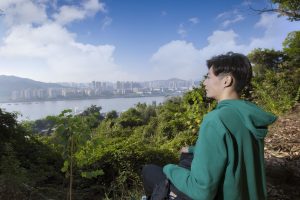
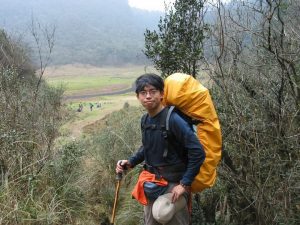
Prof Liu Tzu-Ming hiking in Taiwan with a 20-kg backpack
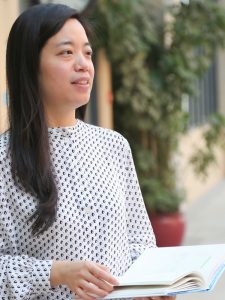
This Christmas, Sun Sisi will visit Jilin province, and she plans to take the book The Great Ocean.
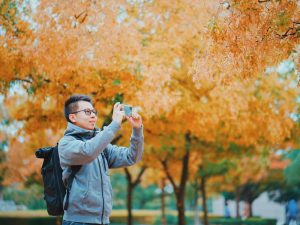
Eric Chan took many beautiful pictures during his trip to Japan
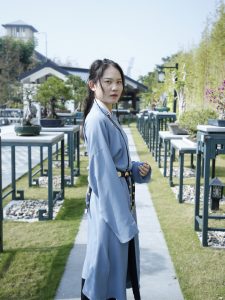
Li Yue likes to wear the traditional Hanfu when travelling around the world
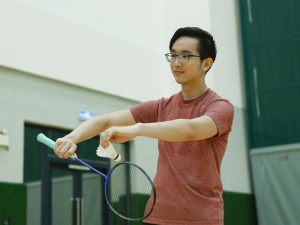
Walter Tan always brings his equipment for badminton with him when travelling
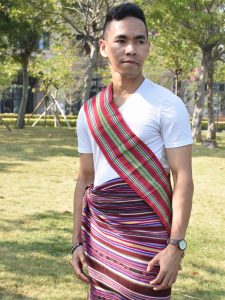
Eurico MCS Martins wearing Tais, a traditional fabric woven by Timorese women
